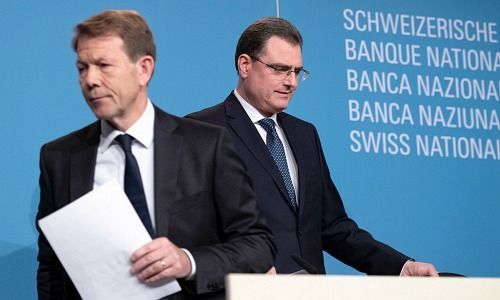Pensions in Danger
But then there’s the pension funds. For decades, they relied on bonds for a steady and reasonable return – now, asset managers fight hard to even get a quarter of a percentage point. And the pension funds affect us all – including all the employees working in the export industries.
In a wide-ranging study of monetary policy in Switzerland, Klaus Wellershoff, the former chief economist of UBS, showed that the interest rate regime hadn’t actually led to the intended outcome – because pension funds didn’t invest more assets abroad and thereby didn’t help lower the pressure on the franc. In other words, the spread between the euro rate and the franc rate isn’t indicative of the value of the franc.
«NZZ», the newspaper of the Swiss business elite, in a comment wrote that the study showed the daily flood of economic data would drown out the announcement of a rate increase in Switzerland. Of course, the newspaper's interpretation appears slightly nihilistic in its approach to monetary policy. Still, the question remains, whether the SNB shouldn’t take the opportunity and show how it intends to return the benchmark back into positive territory. After all, it will need munition for times of a major slowdown of growth.
Two Instruments at Its Disposal
The export industry can take a higher interest rate, home owners have enjoyed years of almost free mortgages and will also be able afford a higher rate and the economic development is still more than sound, despite the recent slowdown. Remains the problem with the franc.
But the bank has another instrument to influence monetary policy – foreign exchange interventions. The bank has used this instrument very intensively and achieved a certain stability for the Swiss franc, since the currency had returned to a more manageable level after the initial surge following the SNB’s decision to break with the euro-link in January 2015.
The resulting mountain of foreign currency has led to further criticism, not least by the country’s finance minister, Ueli Maurer. He indicated last summer that the time may have come to start thinking about a reduction of this vast amount of money.
With global uncertainties remaining – Brexit, China-U.S., European elections – the timing seems not ideal for a decisive new initiative to deal with this issue. But the level of interest rates maybe are less sacrosanct, even if economists have given up all hope.
- << Back
- Page 2 of 2































